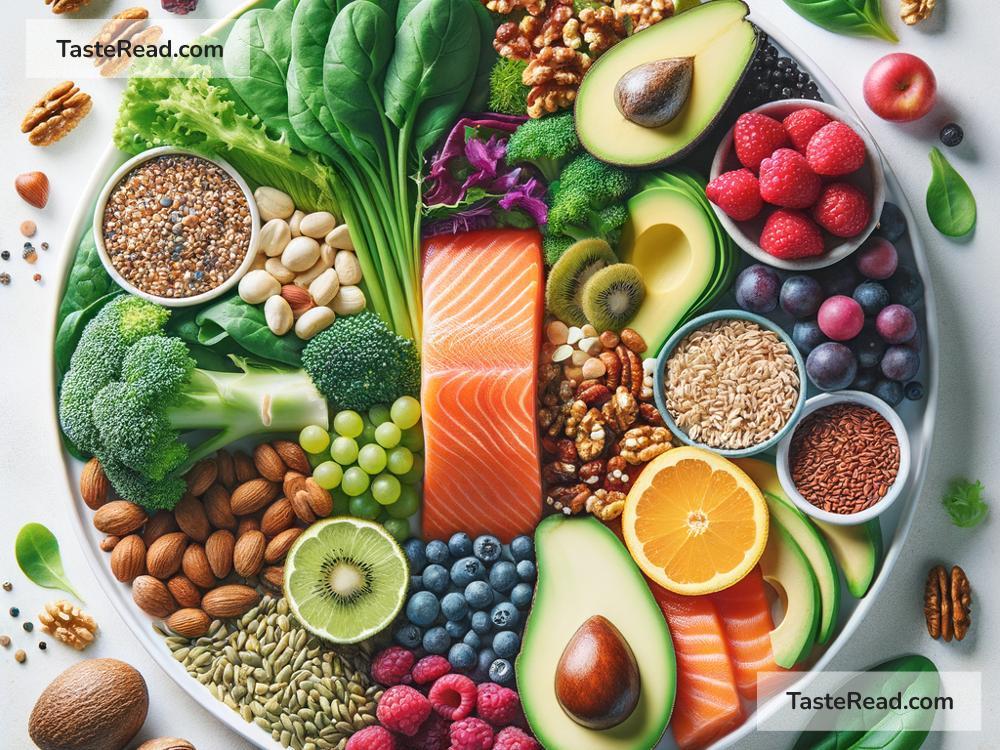The Benefits of a Balanced Diet for Hormonal Balance: Supporting Endocrine Health
Have you ever felt tired, moody, or just “off” for no clear reason? It might surprise you to learn that your hormones could be the culprit. Hormones are chemical messengers in your body that control everything from your energy levels and mood to digestion and sleep. For your hormones to function properly, your endocrine system (the system responsible for making and regulating hormones) needs to be in excellent shape—and your diet plays a big role in this.
In this blog, we’ll explore how eating a balanced diet supports hormonal balance and helps keep your endocrine system—and your overall health—on track. Don’t worry; we’ll keep it simple and easy to understand!
What Are Hormones and Why Are They Important?
Hormones are like traffic signals for your body. They tell different organs and systems what to do and when to do it. For example:
- Insulin helps regulate your blood sugar levels.
- Thyroid hormones control your metabolism, energy levels, and weight.
- Cortisol, also called the “stress hormone,” helps manage how your body reacts to dangers or challenges.
- Sex hormones like estrogen and testosterone play key roles in reproduction, mood, and body development.
When these hormones are balanced, you feel great! But when they’re out of sync, you can experience fatigue, weight changes, sleep troubles, or even emotional ups and downs. The good news is that eating the right foods can be a powerful tool to keep your hormones working properly.
What Is a Balanced Diet?
A balanced diet means eating a variety of foods from all food groups to provide your body with the nutrients it needs to function well. It includes:
- Fruits and Vegetables: Rich in vitamins, minerals, and fiber.
- Whole Grains: Foods like brown rice, oats, and quinoa that provide long-lasting energy.
- Healthy Fats: Found in foods like avocados, nuts, seeds, and olive oil, healthy fats are essential for hormone production.
- Lean Proteins: Found in meat, fish, eggs, beans, tofu, and lentils, protein helps rebuild cells and muscles.
- Hydration: Drinking plenty of water is just as important for overall health.
A balanced diet avoids lots of processed foods and sugar. These can throw your hormones off balance and cause problems like inflammation and weight gain.
How Does a Balanced Diet Support Hormonal Health?
Here’s the exciting part: the foods you eat have a direct impact on your hormonal balance! Let’s look at how key nutrients can support your endocrine health.
1. Stable Blood Sugar Levels
When you eat too much sugar or refined carbs (like white bread or sugary snacks), your blood sugar levels spike and then crash. This forces your hormone insulin to work overtime, which can lead to insulin resistance. Insulin resistance is linked to weight gain, diabetes, and hormone imbalances like polycystic ovary syndrome (PCOS).
To avoid this, eat more whole foods like whole grains, lean proteins, and healthy fats. These help keep your blood sugar steady and prevent hormone disruptions.
2. Healthy Fats for Hormone Production
Your body needs fats to create hormones, especially sex hormones like estrogen and testosterone. Good fat sources include avocados, nuts, seeds, fatty fish (like salmon), and olive oil.
Avoid trans fats (found in fried and processed foods) because they can interfere with hormone production and increase inflammation.
3. Vitamins and Minerals for Thyroid Health
Your thyroid gland controls your metabolism, energy, and even mood. Certain nutrients are essential for thyroid function:
– Iodine: Found in seafood, dairy, and iodized salt.
– Selenium: Found in Brazil nuts, eggs, and sunflower seeds.
– Zinc: Found in lean meats, chickpeas, and pumpkin seeds.
Eating a variety of foods rich in these nutrients supports a healthy thyroid and prevents thyroid-related hormone imbalances.
4. Fiber for Gut Health
Your gut plays a huge role in hormone balance because it helps eliminate excess hormones (like estrogen) from your body. Fiber-rich foods like fruits, vegetables, beans, and whole grains improve digestion and ensure your hormones stay balanced.
5. Antioxidants to Fight Inflammation
Hormonal imbalances can often stem from inflammation in the body. Antioxidants help fight inflammation and protect your cells. Colorful fruits and vegetables like berries, spinach, and carrots are packed with these powerhouse nutrients.
Foods to Avoid for Hormonal Balance
Just as some foods support your hormonal health, others can disrupt it. Try to limit:
– Processed and sugary foods: Cakes, chips, and soft drinks can burden your endocrine system.
– Alcohol: Drinking too much alcohol can disrupt cortisol and insulin levels.
– Caffeine: Excessive caffeine can impact cortisol and sleep hormones.
Moderation is always key—you don’t need to give these up forever, but be mindful of how often you consume them.
Lifestyle Tips to Complement Your Diet
While eating a balanced diet is crucial, your lifestyle also matters for hormone health. Combine good nutrition with these tips:
– Get regular exercise to support metabolism and mood-regulating hormones.
– Sleep well to give your body time to repair and balance hormones like cortisol and melatonin.
– Manage stress through activities such as yoga, meditation, or deep breathing.
Conclusion
Your hormones are delicate but mighty—they quietly work behind the scenes to keep your body functioning smoothly. By eating a balanced diet packed with whole, nutrient-rich foods, you give your endocrine system the tools it needs to keep your hormones in sync. The payoff? More energy, better moods, and overall improved well-being.
Remember, small changes in your diet can make a big difference over time. Start by adding more fruits, vegetables, healthy fats, and whole grains to your plate. Your hormones will thank you!


